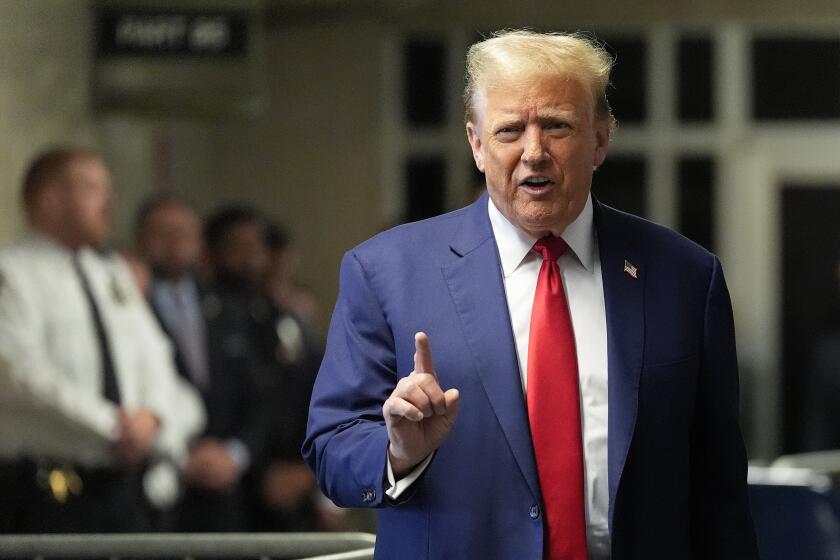White House Hints at Compromise on Gays in Military : Policy: Clinton aide admits there is not enough support in Congress to lift ban on homosexuals. Key lawmaker criticizes Pentagon proposal.
The White House, preparing the way for compromise on the gays-in-the-military controversy, acknowledged Wednesday that President Clinton is likely to face defeat in Congress if he moves for an unqualified end to the military’s ban on homosexuals.
Asked whether Clinton is backing away from his earlier commitments, White House Press Secretary Dee Dee Myers told reporters: “I think he recognizes that it’s very difficult--that there is not support in Congress for a complete lifting of the ban.”
Myers’ comments appeared to confirm speculation that Clinton will adopt an initiative that would allow gay men and lesbians to join the military but expel those who openly declare their homosexuality to fellow service members.
Senior Pentagon officials, seeking to “test the political waters” on Capitol Hill, said they have outlined a version of such an initiative to several lawmakers.
But as the Administration struggles to strike a bargain on the controversial issue, a leading gay lawmaker provided fresh evidence of how difficult that will be.
At a press conference, Rep. Barney Frank (D-Mass.) criticized several elements of the Pentagon’s proposal, including a guiding statement declaring that “homosexuality is incompatible with military service.”
Frank added that the compromise being circulated by the Pentagon would discriminate against homosexuals by recommending discharges for homosexual conduct.
“People don’t expect to be satisfied” with every aspect of a Clinton proposal on the issue, said Frank, who has played a key role in mediating between the Administration and gay-rights activists. “But there are degrees of dissatisfaction.”
Frank’s criticism of the Pentagon proposal could spark a new round of haggling over the issue as Defense Secretary Les Aspin prepares to make his final recommendation to the White House.
Clinton has promised to decide on a policy easing the military’s ban on gays by July 15, and Myers said Wednesday that “he’ll wait and see what Secretary Aspin recommends” before making a final decision.
Frank recently angered many gay-rights activists by backing another proposed compromise under which homosexual troops would be directed not to reveal their sexual orientation. In return, a gay service member would be protected from direct questioning or investigations into his or her sexual orientation.
“I accept the reality that there is a concern in the military that gay men and lesbians who serve and who go out of their way to call attention in a public way to their homosexuality, that they cannot be protected in the current situation,” Frank said. “I understand that. I don’t like it, but I am prepared to accept that.”
But Frank said the proposal now being pressed by the Pentagon does not go far enough toward protecting gay service members whose sexual orientation may be discovered by colleagues or commanders.
Frank’s criticism of the Pentagon proposal appeared to ally him once more with the gay-rights activist groups he had angered through his earlier efforts at mediation. At the same time, he appears to have been successful in convincing some gay-rights activists that they may have to settle for less than they had hoped.
Tim McFeeley, executive director of the Human Rights Campaign Fund, said Wednesday that he could accept some restrictions on a member of the military publicly declaring his or her homosexuality.
More to Read
Start your day right
Sign up for Essential California for news, features and recommendations from the L.A. Times and beyond in your inbox six days a week.
You may occasionally receive promotional content from the Los Angeles Times.







